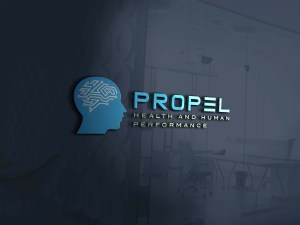KGB Vol 18: High Performance & Getting Old
“Getting old is no fun!”
I hear it nearly every day from some of my aging athletes. While they are certainly right, it is no reason to go down without a fight. In the modern era, athletes no longer hang up their gear after a certain birthday.
The distinction between high performance and anti-aging is quite blurry. At a recent anti-aging conference, one speaker made a very powerful statement saying something to the effect of “death robs you of your sleep first.” This hit me both personally and professionally.
Personally, I had just spent over three years monitoring things like heart rate variability, resting heart rate, fasting blood glucose and a few key blood tests only to find that I literally operate better on 8-9 hours of sleep where previously I was “fine” with 3-5 hours. I committed to improving my sleep health and reaped some significant benefits.

Professionally, the speaker’s assertion made me think of my high performers in both sport and business. Sleep is an easy sacrifice for many of us to make and, in some cases, is simply the only way to get ahead in business. The impact of poor sleep is profound, but there are many solutions that help mitigate the effects of a deficit. Using the results of key blood tests can help identify where performance-limiting factors may be creeping in when it comes to energy levels and body composition.
“Human optimization” is a concept that I like to focus on, but it can be overblown by certain sources. To me, the term means finding your personal sweet spot of health and fitness. That spot is different for each of us and there are many factors that influence decisions related to achieving this goal. Access to healthcare is a big one. Not every primary care physician is interested in helping you find this sweet spot but, rather, they are focused on keeping you out of the “red zone” of illness and decline. If these practitioners were focused on “health care” as opposed to “sick care,” they likely would take a different approach to interacting with patients. For instance,tightly managing hormone health is essential to high performance for both males and females. There are hundreds of blood tests out there, but if every primary care provider would order just a few key labs and monitor them, many patients would function better in their daily lives overall. Those labs would likely include:
Thyroid function. Both men and women can have poor thyroid function which can lead to body composition issues and poor energy levels. Medication is not always the answer if things are off. Lifestyle choices like nutrition can have a big impact on this particular issue and may be worth exploring before long-term medical management.
Fasting blood glucose. Very simply, how well your body processes the food you eat matters. Elevated fasting blood glucose could be a sign of many things but, again, medication is not always the answer. Food selection and nutrient timing can be great first steps into figuring out what approach works best when trying to get these levels into a healthy range. This is so simple it can even be tested at home.
Hormone levels. Monitoring and manipulating hormones like the various testosterone and estrogen markers can be controversial in certain circles and, in other circles, using these strategies is a common tool to maximize performance. If you are a tested athlete, your options are limited. If you are a coach trying to stay on top of your game, monitoring and managing your hormone health is crucial. Levels naturally drop as we age, but supplementation can occur on multiple levels. There are ways to encourage increased natural production as well as utilizing a synthetic source.
Why not battle the effects of aging? The first step is finding your baseline by using some laboratory testing and consulting with a qualified health professional to initiate some positive lifestyle modification. This can be a slow process, but you may find that the solution is simple. In my case, I needed to act more like an adult by cutting off my night time snacking at 9 p.m. and just go to bed. This was a tough sell for me, but the data I collected supported the change and there was no need for any medication or synthetic hormones. Many times I choose to stay up later or get a few more calories after 9 p.m., but I have identified what my 80% should look like. Consistency is not defined by perfection. Staying the course 80% of the time is usually plenty good to maintain health.
Take your time, make some small but consistent changes, see what you find out about yourself and aggressively chase down your personal sweet spot. Blood testing and medical management of aging can be a huge can of worms. There are several factors that influence these decisions and approaches to healthy aging. More medication is rarely the answer, but managing some key factors early in your aging process can set you up for long term success in retirement. It can definitely get complicated, so building your healthcare team is as essential as assembling a winning roster to put on the ice.
Looking for suggestions?

Dr. Bowman’s starting 6
- General health: Primary Care Physician
- Aging concerns: Physician trained in hormone management (often called Functional Medicine in the U.S.)
- Nutrition: Nutrition consultant trained in co-managing with blood test results
- Fitness: Fitness consultant with an understanding of aging athlete concerns
- Joint and soft-tissue health: avoid lost opportunity due to injury
- Mental health/performance: keep your most vital organ in check

